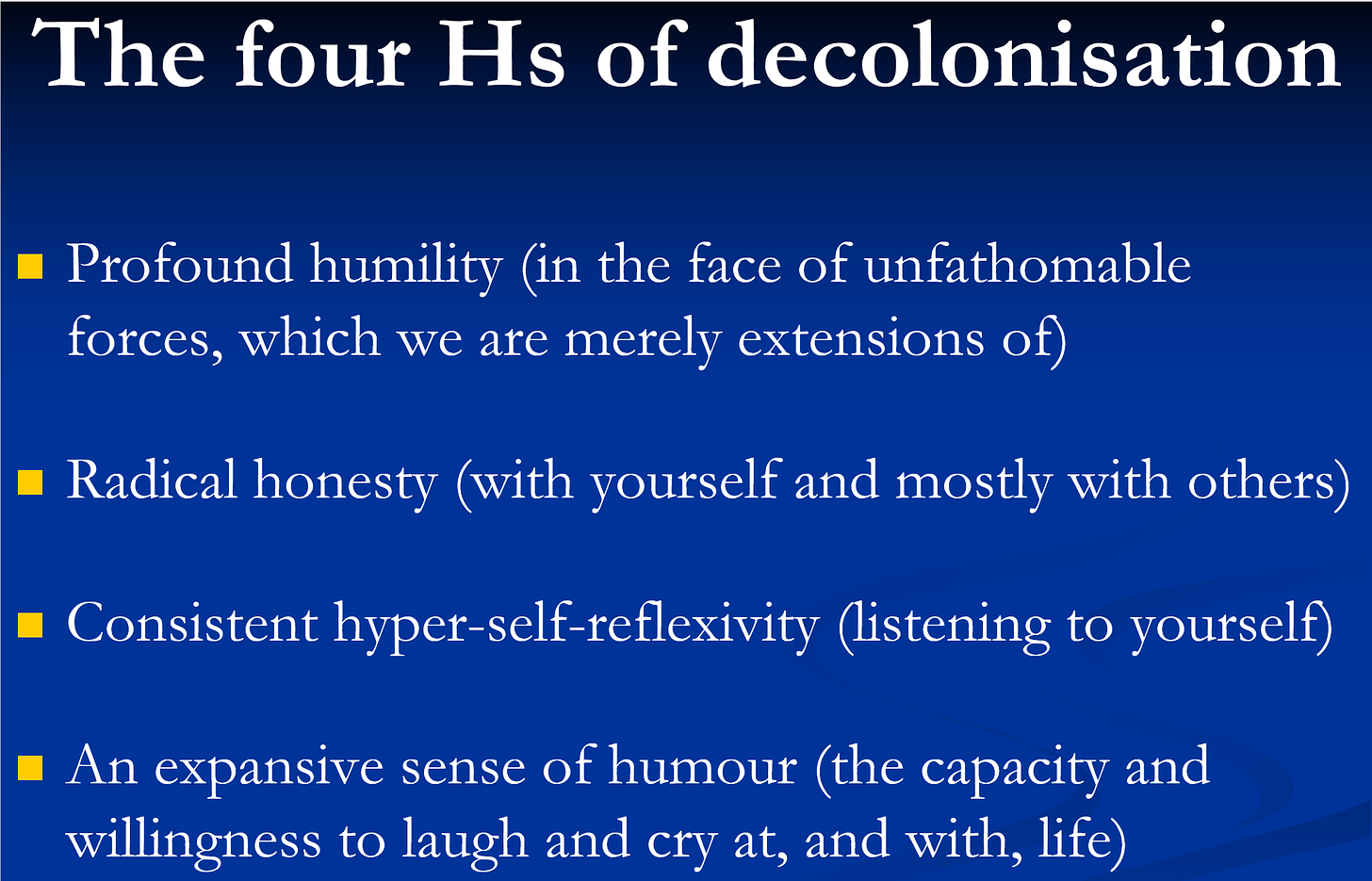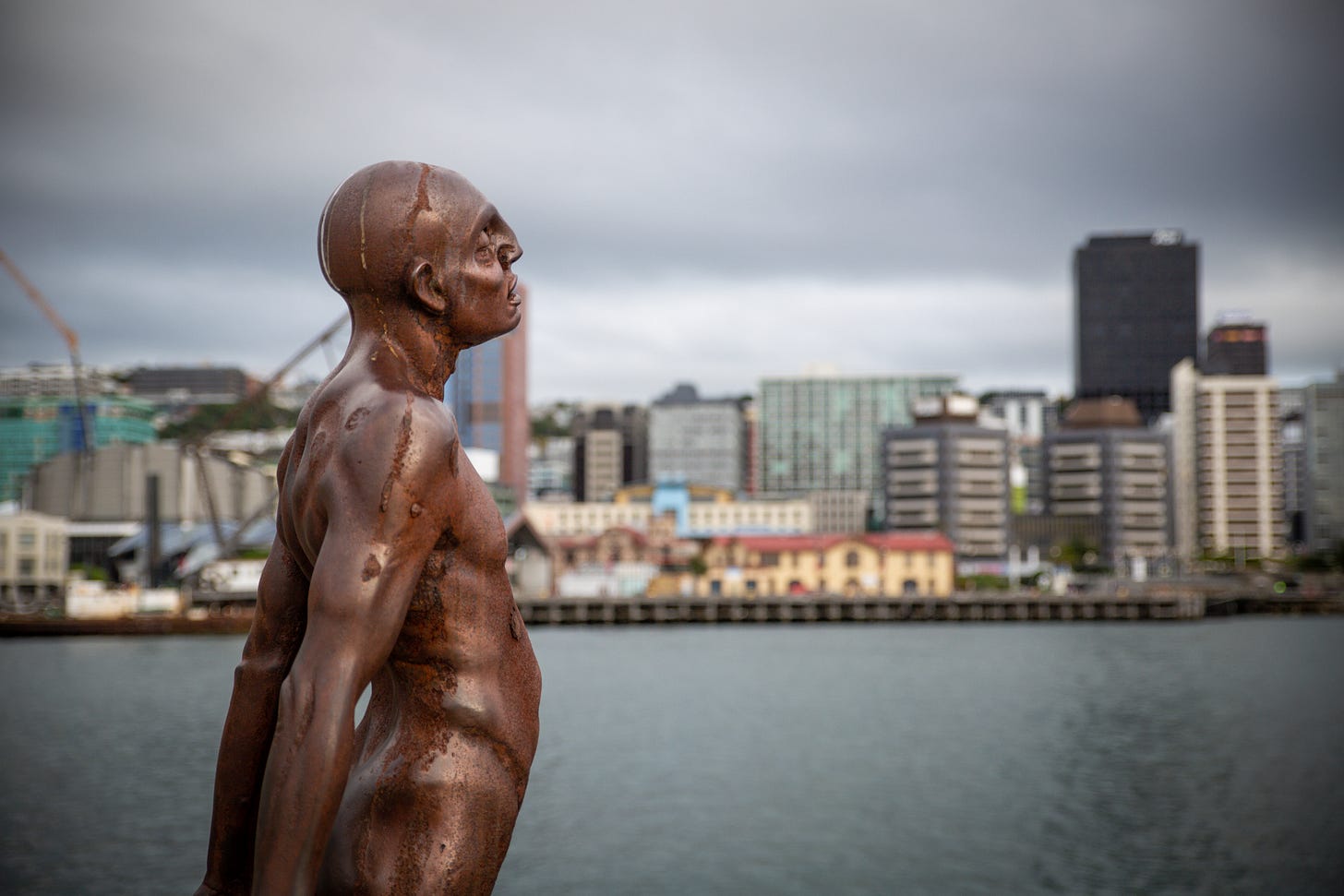Democracy and Māori within the Coalition Agreements: Part three
Is it possible to support democracy and Māori? I hope it is, but I am unsure at this point. Third part of my series on analysing this government coalition agreements
This is part three of a multi part series aiming to unpack this government’s two coalition agreements.
Overview of the coalition agreement: Part One
Evaluating the coalition agreement: Part Two
Democracy and Māori within the Coalition Agreements: Part three
I want to start this third part with Professor Yin Paradise's four Hs of decolonisation. I heard him discuss this at the Te Tiriti Based Futures + Anti Racism 2024 Conference. These four Hs are principles I wholeheartedly believe in and aim to live by, as well as the values from which I write this article:
Profound Humility
Radical Honesty
Consistent Hyper-Self-Reflexivity
Expansive sense of Humor
This article was hard for me to write. I really struggled to provide analysis without having to reflect deeply on the topic and how to go about it. I am someone who is strongly in favor of ideas of democracy and freedom of speech, as well as somebody who recognizes Māori as Tangata Whenua and that I am here as Tauiwi, who is not only here because of Te Tiriti o Waitangi but also because of Te Tiriti o Waitangi breaches. Today, this is a confusing and painful space to occupy for me. Especially with this government's policies disguised as pro-democracy when, in reality, they are just anti-Māori.
It is politically, socially, and culturally problematic that this government has chosen to weaponize the ideas of democracy to attack Tangata Whenua, our national languages, and reverse measures that would have legitimately helped close the inequities in health, education, and justice.
So, when analyzing this government coalition agreement, it's difficult for me to try and defend anything. The pull to support democracy is now equal to dog-whistling. I find this deeply problematic and am unsure of how to think about it, solve it, or where I sit within this debate as a Tauiwi in favor of democratic principles.
So today, I won’t do much analysis; I’ll just share what the Coalition Agreements say about democracy and Māori, refer you to a few articles that articulate this issue much better than I can, and conclude that I disagree with all of it while still supporting democratic principles.
Is it right for me to want to defend democracy and freedom of speech? I am unsure, but this is where I am now. I commit to keep learning and pushing myself to understand this further. To always uphold Prof. Paradise's four H's of decolonization: profound humility, radical honesty, consistent hyper-self-Reflexivity and an expansive sense of humor.

Summary of what the two coalition agreements say about Māori and Democracy
NZ First and National Coalition Agreement on Democracy
Refocus the curriculum on academic achievement and not ideology, including the removal and replacement of gender, sexuality, and relationship-based education guidelines.
Abolish the Māori Health Authority Commit
that in the absence of a referendum, our government will not change the official name of New Zealand.
Ensure publicly funded sporting bodies support fair competition that is not compromised by rules relating to gender.
Legislate to make English the official language of New Zealand.
Ensure all public service departments have their primary name in English, except for those specifically related to Māori.
Require the public service departments and Crown Entities to communicate primarily in English, except those entities specifically related to Māori.
Restore the right to a local referendum on the establishment or ongoing use of Māori wards, including requiring a referendum on any wards established without a referendum at the next local body elections.
To Stop all work on He Puapua
To confirm that the Coalition Government does not recognise the United Nations Declaration on the Rights of Indigenous Peoples (UNDRIP) as having any binding legal effect on New Zealand.
Support to select committee a bill that would enact a binding referendum on a four-year term of parliament.
Protect freedom of speech by ruling out the introduction of hate speech legislation and stop the Law Commission's work on hate speech legislation.
ACT and National Coalition Agreement on Democracy:
Remove co-governance from the delivery of public services.
Ensure government contracts are awarded based on value, without racial discrimination.
Issue a Cabinet Office circular to all central government organisations that it is the government’s expectation that public services should be prioritised on the basis of need, not race, within the first six months of Government.
Repeal the Canterbury Regional Council (Ngāi Tahu Representation) Act 2022.
Restore the right to local referendum on the establishment or ongoing use of Māori wards, including requiring a referendum on any wards established without referendum at the next local body elections.
Pass the Constitution (Enabling a 4-Year Term) Amendment Bill through first reading in the first 15 months of the term.
Introduce a Treaty Principles Bill based on existing ACT policy and support it to a Select Committee as soon as practicable.
Other relevant articles courtesy of NZ Politics Daily:
Anton Blank (Spinoff): Death by a thousand cuts: How political decisions affect Māori
Te Ao Māori News: Māori rights to face global spotlight
Herald: Treaty principles should be principles of good government - Māori academic
Herald Editorial: Te reo Māori is an official language - so let’s embrace it, not get offended by it (paywalled)
Karanama Ruru (Stuff): ‘It’s my right’: Dame Naida Glavish on te reo in the workplace





That is a challenging topic. My view is that one cant use tribalism to run a nation of millions of people, and currently democracy is looking the best way forward. Self determination like tribalism is better used locally, as we have seen during Covid, but mixing tribalism with democracy gives you the benefit of neither. That is why I didnt like 3 waters, and I think Winston Peters might feel the same. Maori should simply ban tobacco in their local areas. People might accept that. What do you think ?